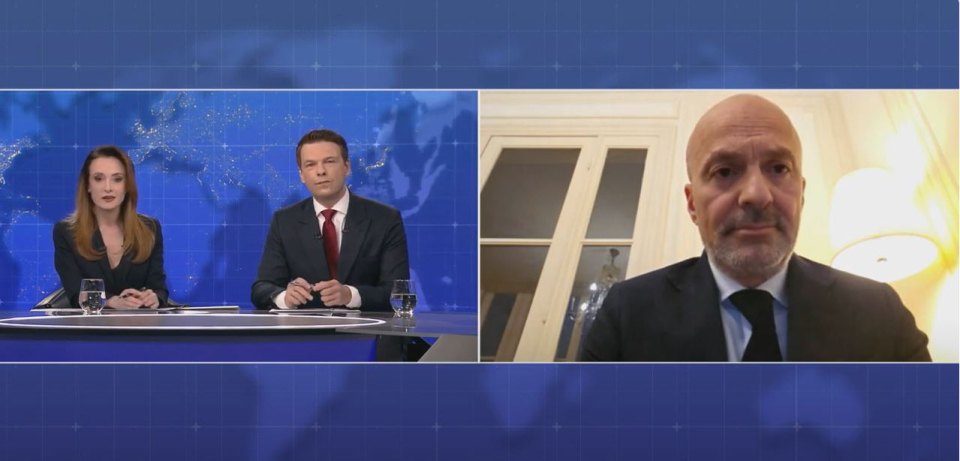Analysis
Reality Check: Israel, the Palestinians, and COVID Vaccines
Israel, Palestinians, And COVID Vaccines: A Reality Check
January 25, 2021
By David Harris
It seemed too good to be true.
Finally, here was a story about Israel —the world leader in vaccinating its entire population, in all its rich diversity, against COVID — that the media might present in positive terms.
Indeed, Israel was ahead by a long shot, compared to the U.S. and Europe, and showed just how organized, efficient, and responsive the country could actually be when the stakes were so high for everyone.
But, alas, it wasn’t long before the critics surfaced, some with harsh attacks that accused Israel of deliberately neglecting vaccinations for Palestinians living in the West Bank and Gaza. The implication, and often the downright accusation, was that Israel was impervious to the health of Palestinians, perhaps even contributing to the spread of the virus itself.
Here are just three glaring examples.
Congresswoman Rashida Tlaib of Michigan called Israel a “racist state” that was denying vaccinations to Palestinians like her grandmother, who lives in the West Bank.
Meanwhile, freshman Congressman Jamaal Bowman of New York referred to Israel’s “cruelty” in failing to offer the vaccine to Palestinians.
And The Guardian chose this toxic headline: “Palestinians excluded from Israeli COVID vaccine rollout as jabs go to settlers.”
Were these assaults another way for the critics to divert an amazing Israeli response — and, yes, the publicity it might generate — into one more alleged human-rights charge that would garner attention and register automatically with certain individuals, NGOs, and countries?
Saddest of all is the critics have largely chosen to ignore what’s actually going on. But that would entail acknowledging that facts do matter.
The Palestinians, under the 1993 Oslo Accords, assumed responsibility for health. They set up their own health ministries in what is today the Palestinian Authority-controlled West Bank and Hamas-controlled Gaza.
Moreover, Palestinian leaders opted to develop their own responses to COVID vaccination rollouts, working with the World Health Organization, various governments, including Russia, and several pharmaceutical companies. They said so publicly.
And, in doing so, they rejected Israeli overtures for cooperation, including when vaccines were actually being ordered by Israel. After all, especially given the close proximity of the areas, and the frequent human interaction, it is absolutely in Israel’s interest for the Palestinians to move ahead as swiftly as possible on the vaccination front.
But let’s remember that when the United Arab Emirates wished to send COVID-related medical equipment to the Palestinian Authority, it was turned down because the shipment from Abu Dhabi was sent via Israel. Tellingly, and not for the first time, hatred of Israel outweighed securing needed health items.
And when, more recently, an Israeli official was questioned by CNN’s Christiane Amanpour on the subject of Israel’s role, he raised the quite reasonable suggestion that perhaps the Palestinian Authority could devote more of its funds to the medical response and less to funding terrorists in Israeli jails and their families — an estimated $300+ million annually, or eight percent of the Palestinian Authority’s total budget. The veteran journalist snickered and replied that terror and vaccines were “separate issues.”
Really? Why are they separate? If the Palestinians are going to claim a shortage of funds, which they do from time to time when it serves their purposes, then don’t their spending priorities merit scrutiny?
Or, in the ultimate condescension, is all agency removed from the Palestinians, as if they can’t be held responsible for their choices? Otherwise, heaven forbid, the conflict becomes more complicated and all blame can’t so conveniently be assigned to one side — the Israeli side.
The Palestinian Authority made choices. They cut off cooperation with Israel. They decided, consistent with past health practices, to handle the vaccination rollout on their own. They moved ahead to contract vaccines from Moscow and elsewhere. Those vaccine deliveries have their own timetable.
In this case, Israel made choices that turned out to be more timely. Should it be faulted for doing so? By the way, the Palestinians aren’t the only ones in the world waiting impatiently for deliveries. So are many, many countries.
All that said, Israel has repeated its offer of cooperation, has quietly shared some doses of its vaccine supply with the Palestinian Authority, and has opened its hospitals to Palestinian COVID victims.
And speaking of Israeli hospitals, it’s important, despite the slanderous assertions against Israel, to see the larger framework of how those hospitals operate.
Two quick stories.
During fighting triggered by deadly Hamas missile attacks on Israel, I visited Barzilai Medical Center in Ashkelon, not far from the border with Gaza. There I saw wounded Hamas terrorists, whose stated goal is Israel’s annihilation, getting the exact same top-quality care as Israeli victims of those attacks. Actually, I would have expected nothing less from Israel.
And I will never forget being in Rambam Hospital, in Haifa, during missile attacks from Hezbollah operatives in Lebanon. The hospital staff, itself a remarkable reflection of Israel’s pluralism, was going back and forth to the bomb shelters every few minutes. In between, they were caring for each patient equally -- Jew, Muslim, Christian, Druze, Israeli, Arab.
Meanwhile, the researchers were using every available minute in the labs to extend their work in seeking cures for cancer, diabetes, and other diseases that would benefit all humanity, starting in the larger Middle East.
These are the stories from Israel that rarely get told. They present a compassionate, humanistic side of Israel, which is real, widespread, and ongoing in Israeli medical care and public health.
There’s much good to learn from Israel’s example. Unfortunately, it would never be even remotely obvious following certain newspapers, some Twitter accounts, or watching a few noted television reporters.









